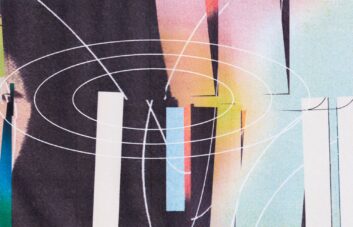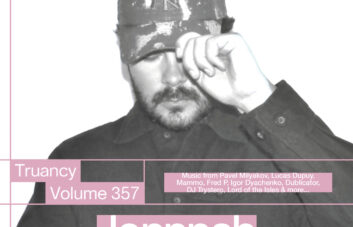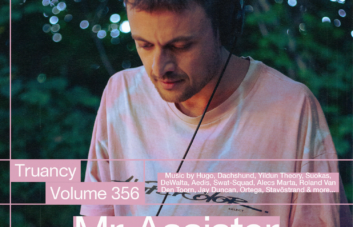The ability to be diverse in one’s creative output without compromising on quality or substance is a rare quality, but one that could be easily ascribed to the Toronto-based producer and DJ Stuart Li. Working primarily under the name Basic Soul Unit (the name itself could be interpreted as an indication of his approach, a synthesis of classic organic Chicago house sounds with the more structurally “rigid” sound palette of techno), Li has slowly but steadily built up an impressive back-catalogue of releases on labels which encompass various geographies as well as stylistic variations of dance music. His latest project, an album on the Dutch label Dekmantel entitled Under The Same Sky, is arguably Li’s most full-on and impressive take on techno. We had the pleasure to speak with Basic Soul Unit about his relationship with music, his experience of the dance music scene in his hometown of Toronto and a host of other topics.
You moved to Canada in the mid-80s. Did your exposure to dance music happen then, and was it through going out or through radio? What were your most memorable, formative musical experiences from that time?
“Yes, I wasn’t exposed to dance music until I moved to Canada. It was probably about 1986 – I was about 11 years old and my sister was in high school. She would go to parties and tape college radio shows. The radio shows and tapes were where I first heard the music. It was a mix of house, hip-hop, RnB, Latin freestyle, reggae and calypso. I then got into the music and started taping the shows myself. Ron Nelson’s Hip Hop show was on Saturdays and Dave’s Dance Music on Sundays (88.1 CKLN). After that a friend and I would go downtown to the main dance music shops that we heard about on the radio to buy records (Star Sounds and Carnival Records).
At that point we started DJing some school- and house-parties for fun. During high-school in the late 80’s my friends and I were already going to all-ages clubs which played this mix of music (including Zoo Club & RPM). Then when I was about 15 or 16 years old, we went to our first after-hours party at a place called 23 Hop. Last call for alcohol was 1am back in those days (its still pretty early at 2am even now). People generally hung out at the club and then hit the after-party. I remember Frankie Knuckles and Pal Joey were on the bill. We actually left early because one of our friends had a strict curfew. We were kind of pissed that we had to go. I should have just left his ass to go home by himself, LOL. But nonetheless, the atmosphere and vibe had me hooked. It was the first proper house music party I’d been to and the crowd was very mixed, gay, straight and different races.
This and the subsequent after-parties (commonly called warehouse parties even if they weren’t in a warehouse) we went to really were the formative days of my house music experience. Their names were just based on the streets where they were located: Victoria St, Wellington, Oxford, Claremont, etc.”
In the past you have mentioned that the experience of studying architecture has contributed to your musical pursuits. I find that very interesting – do you see that more as broadly influencing how you approach a given creative process, or is it something more specific and direct with regard to applying concepts from architecture to how you view sound and composition?
“I think it was more the creative process rather than any concrete concepts that I would attribute influences from school. I just have a tendency to view the bigger picture of the project which I got from those days. While I don’t usually have preconceived themes when starting a track I think this affects the way I arrange my songs. I find it hard to do live jam sessions or looping tools and beat tracks.”
What was the process of writing your newest album like, and did it involve a different approach from your previous full-length, Motional Response? Did you set out to write an album, or was it a case of having come to a point when you had a certain amount of material that best fit the format?
“With the first album, Still Music had approached me about doing the album before I started. In this case, I had finished the material before approaching labels that I thought it would work on and that I would want to work with. However, in both cases, I had no overriding theme or concept about what the album was going to be like. It was simply a reflection of my state of mind during the time period that I made these tracks. In fact when I started the tracks which appeared on this album, I did not even intend to make an album. I had got some demos together and they seemed coherent enough to tell a story so I decided to make an album at that point and worked on a few more tracks.”
Stylistically Under the Same Sky presents a pretty significant departure from that previous album (though I would say that there is a welcome maintenance of a certain manner of approach that has set your music apart). What inspired this shift? Is it something that is also reflected in your DJ sets, or do you generally separate your production and DJing?
“As a DJ I have always played and listened to a wide range of music although it doesn’t always reflect in my own work. I think that in this case, these other influences like broken beat, bass, or European & British techno have been finding their way into my productions even though I did not consciously decide to make the album in any particular style.”
You’ve often spoken of your longs-standing love of soul, jazz and funk. In addition to listening to and playing these types of music at parties, have you ever tried your hand at, for example, jazz? And do you have a favourite jazz record?
“No, I’m not a trained musician nor do I play instruments. That’s probably why I ended up doing house and techno. Especially in today’s digital world, it allows you to express yourself with reasonable means. Though ease of access doesn’t necessarily equate to ease of mastering the form. As for my favourite jazz record, there’s too many to narrow down. The few that immediately pop to mind are Tenorio Jr’s Embalo, Nathan Davis’ The Hip Walk and Cannonball Adderly’s Something Else. These are more for listening than for the dance floor, but I did follow the UK soul & jazz scenes and DJs like Gilles Peterson, Patrick Forge, Russ Dewberry and Keb Darge.”
How do you see the development of the dance music scene in Toronto in the last several years (or even in comparison to what it was like when you started out DJing), both in terms of bringing in artists from outside the city but especially regarding local talent? Is there an emergence (or re-emergence) of cross-pollination with scenes in other Canadian cities, or perhaps due to the proximity, Detroit? Are there any new/lesser-known Toronto DJs/producers who you are really excited about?
“Toronto has been through several cycles of up and down with dance music. In the last few years things seemed to have slowed down a bit in tandem with gentrification, political pressure and restrictive laws. One of the results of all this is that there are not really many proper venue options. The ones that do exist cannot operate at full potential due to neighbourhood noise complaints and such. However, within the last year – maybe even the last few months, things seem to be picking up. A few new promoters, some new faces and younger crowds are getting into the mix. People are using alternative and temporary venues and I’m feeling a sense of excitement returning to the dance floor.
With regards to DJs, the problem relates to the restrictive laws. As with most other cities in the world, a lot of parties book international guest DJs. However with a limited time window because of a 2 a.m. last call on alcohol, locals don’t get the time to shine. People would arrive after 12 a.m. and leave by 3 a.m. which is the peak time slot that guests usually play. This leaves the local warm up DJs to play an hour or two beforehand when no one is there. That said, there are many smaller parties featuring locals that are well attended. I just feel its rare for them to get decent exposure at bigger events.
I’m biased regarding locals I like but I’ve always rated up my label partner J-UL (Jason Ulrich) as a DJ. He’s been around as long as I have and has a similar range of musical taste. He can get deep as well as bang it. On the production side Maxwell Church, a young producer on Lab.our is one to watch. He’s definitely got his own flavour and take on raw techno. There are many more DJs and artists and I will definitely miss out some names trying to list them.
Lastly, North America and Canada in particular is a large country where major cities are spread far apart. Montreal is a six hour drive from Toronto and Vancouver is a five hour flight away. So there is not as much cross pollination as one would think. Of course nowadays it’s just as easy to communicate with someone from Europe online.”
Could you also talk about the new event which you have started with Gingy, Technochurch?
“Actually, Technochurch is more Brian’s (Gingy) baby. I’m involved to the extent of being one of the regular DJ’s. Some of the rotating cast members are Nautiluss, Kevin Mchpee, Andrew Ross and Brian himself. However the idea is to involve more local Djs and artists while occasionally bringing in an international guest. It takes place periodically on Sunday afternoons and runs into the night at a loft event space. He’s very open to us giving suggestions and input on the event which is great. One of the great things about this idea is that it avoids all the restrictions venues and promoters have to deal with at night. For example, last call for alcohol is 2 a.m. in Toronto. This means that people will generally show up to a club after 12 a.m. and pretty much leave by 3 a.m. With Technochurch we can get at least nine full hours and give people a proper journey. The first one was a great and hopefully it will continue to be a success.”
You co-run a label with Jason Ulrich, Lab.our. What are your plans for the near future with that project? What is it like running a label in Canada – the logistics of it and so on?
“We’ve got a few EPs all from Toronto artists lined up into the new year. Up next is label regular Maxwell Church, then we’ve got new names Aberdeen, Jerry Riggs vs Krizzli, R, and Benjamin Wood all slated for release. Though the label is based in Toronto, the distribution (Diamonds & Pearls), mastering and manufacturing are all done in Germany. DnP have been great at running the logistics side of things so really we just concentrate on getting fresh music from the artists. I feel like Toronto’s finally at a point where there’s a lots of upcoming cats eager and motivated to work on music and get stuff out. There’s been notable artists from here before of course but it seems things are kinda coalescing into a community. It’s been great to have a platform to put out material from these artists.”
What are your plans/future projects for after the album?
“I’m back on the road in November in support of the album. Besides that, I’ve also got EPs on Skudge X and Fred’s P label as well as a couple remixes coming up. In the meantime I’m working on new material, at least as much as being a married dad and graphic designer will allow.”
You can pre-order Basic Soul Unit‘s 2nd full length album ‘Under The Same Sky” from Dekmantel.




